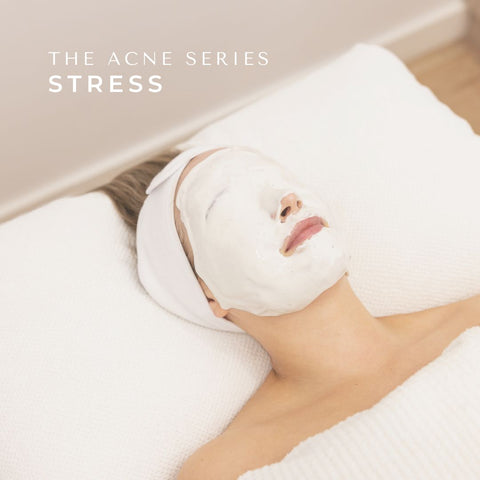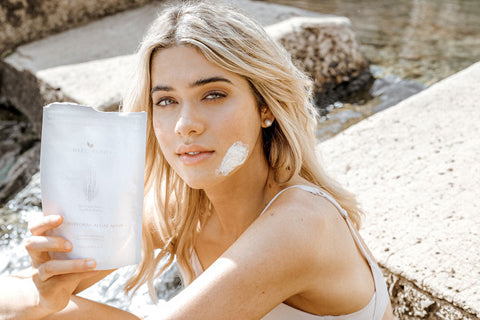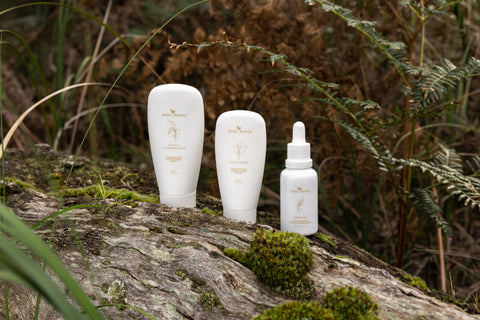Acne vulgaris affects around 80% of adolescents and young adults aged 11-30 years. It is a multifactorial skin condition caused by blockages or infection in the hair follicle and sebaceous gland. There are multiple issues that can arise and influence these external causes. There are also varying grades of acne along with different types of congestion. Let's dive into what these are.
Grade 1: Otherwise known as blackheads or open/closed comedones. There is no infection present and is more of a visual nuisance.
Grade 2: Papular/pustular. This is an infected lesion as the body begins to send white blood cells to the area. Body will also try push out the pustule and will resolve it within a few days to a week.
Grade 3: Nodular cystic. These are much deeper blockages that are far from the skins surface. The body encapsulates the infection and directs specific enzymes to break it down. This healing process can take weeks and can ultimately damage dermal tissue that leads to scarring.
How does stress impact acne?
Stress has been shown through numerous studies to encourage acne growth and as a result:
- Wounds have a slower healing rate. This means acne can linger for longer and be more susceptible to increasing in severity as well as volume (compounding effect). Picking is not advised.
- Stress hormones rise which can trigger oil glands to be overactive which can then result in a flare up
- An increased release of the stress hormone cortisol. Cortisol can disrupt the immune system, digestive system, reproductive system, and growth processes. This creates internal dysbiosa which can inevitably show in the skin.
- Lastly and most importantly, stress creates oxidative stress which can cause lipid per oxidation to occur. This is believed to be where acne begins with studies showing that subjects who were stressed also experienced more severe grades of acne.
Solutions to managing stress:
Now we aren’t here to give you the old “don’t stress” line, we know how unrealistic that is and how difficult it can be to manage your stress load appropriately (especially when you’re in the thick of it). What we can do, is give you some helpful evidence-based tips from a skin therapist perspective:
-
Antioxidant rich foods
Berries (blueberries, blackberries, cherries, goji), dark leafy greens (spinach, kale), green tea and the most fun one - dark chocolate! There are plenty of foods rich in antioxidants to help promote healthy skin.
-
Pre/Probiotics
Your skin has its own immune system. Getting on to a good quality pre/probiotic can help encourage the growth of good bacteria and strengthen its ability to defend against acne-causing micro-organisms.
-
Quality sleep
Fatigue can contribute to many changes within the body; even your skin! If we are constantly running on a few hours of sleep, this can directly impact the stress response within our body, which in turn may lead to sebum overproduction. Aiming for at least 7-8 hours of sleep each night is ideal. If you find it hard to get to sleep, we suggest winding down for at minimum 1-hour prior to lights out by doing something you find relaxing (reading, meditating, listening to white noise etc).
-
Implement stress reducing activities
We all know the obvious recommendations for stress relief; exercise, meditation, Yoga etc. We’d thought it would be great to share some other manageable ways you can utilise to reduce stress:
- Get creative! Dig up those old coloured pencils and buy yourself a colouring book or pour yourself a glass of wine and host your own personal Paint-and-Sip. Even sorting through your photos folder on your phone and organising your most favourite moments (like digital scrapbooking!). Leaning in to your creative side, however that feels to you, can take your mind off wandering for a little while.
- 4-7-8 Method. Breathe in for 4 seconds, hold for 7 seconds and breathe out for 8 seconds. Studies have shown that focusing on steadying your breathing can reduce the feeling of stress & overwhelm.
- Mirror gazing. Whilst yes, this is a form of mindfulness practice, we love this method as it allows us to provide space for acceptance and nurturance within ourselves (especially when we are feeling uncomfortable in our own skin). So how do you do it?
Set aside a minimum of 5-10 minutes in front of a mirror, get comfortable (pillows, blankets etc).
Close your eyes and practice the 4-7-8 method (as above) for four breath cycles.
Open your eyes and gaze in to your reflection. Some may find this uncomfortable, but lean in to this feeling. Why is it uncomfortable? What are you seeing in your reflection? Anger, fear, judgement? Or maybe you feel acceptance, comfort or contentment.
Let your thoughts flow free of judgement. Accept them as they come and go and allow yourself to be present in the moment.
-
Supplements such as Zinc, A, C, E
Supplements can be a great addition to help with the management of Acne. Minerals such as Zinc are great at reducing inflammation and stabilising oil production. Whereas Vitamins such as C & D can help with wound healing and collagen production.
-
Incorporating antioxidant rich skincare to reduce skin impact
Our range is skin barrier supportive and great for those experiencing Acne. Your skincare routine doesn’t have to be complicated, nor does it need to involve many different balms or targeted serums to help get on top of your healing. Starting with a few simple products, you can support a healthy sebum production, reduce scarring and pigmentation and be left feeling hydrated & supported within your skin.
Gentle Foaming Cleanser
Curative Serum
Omega Oil
Vital Cream
Bamboo Enzyme Peel (1-2x per week)





